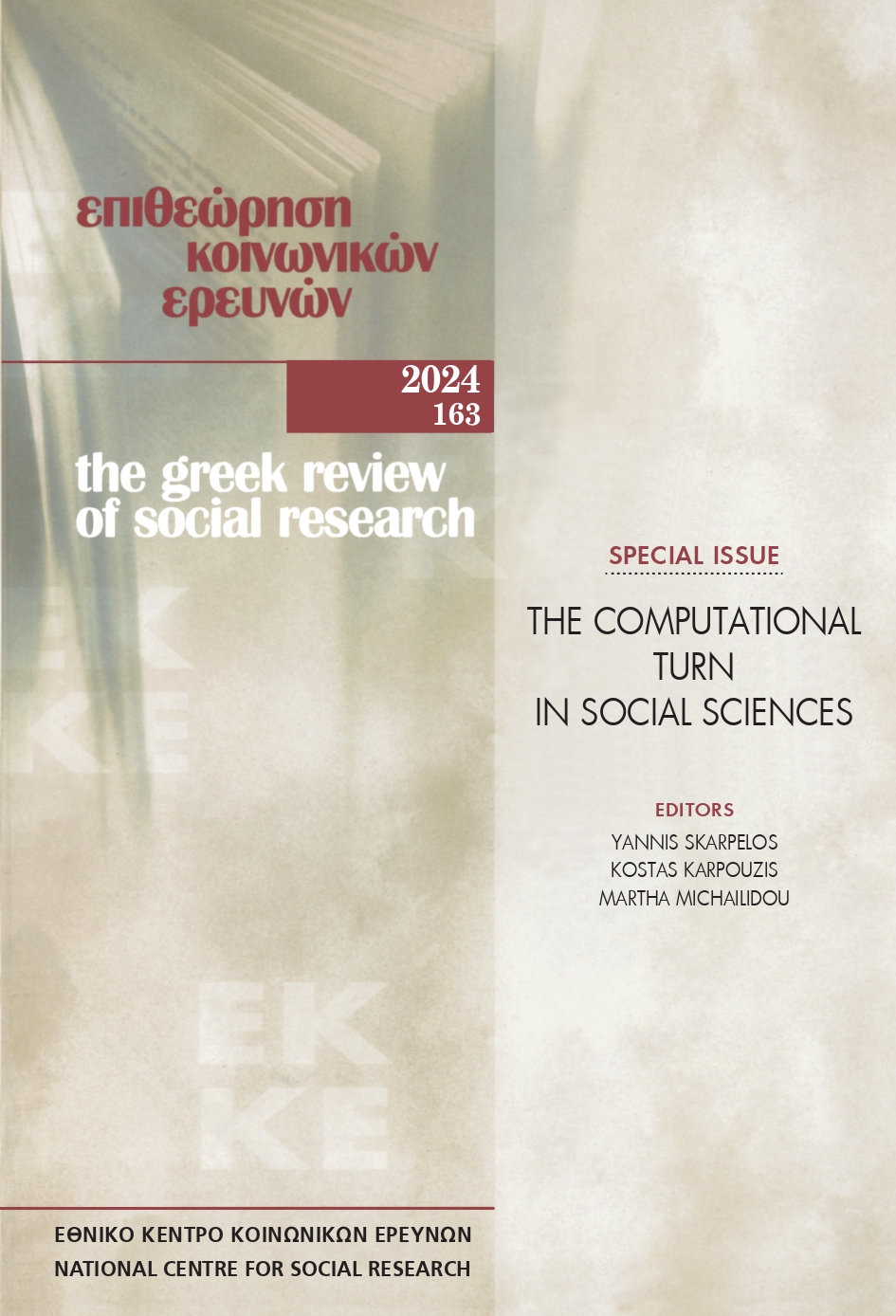Συναισθήματα κατά τη διάρκεια εκλογικών περιόδων: Αποκρυπτογράφηση του λόγου των χρηστών του Twitter

Περίληψη
Η ανάλυση συναισθήματος όπως εκφράζεται στα μέσα κοινωνικής δικτύωσης έχει αποτελέσει αντικείμενο διερεύνησης στον χώρο της υπολογιστικής πολιτικής επιστήμης σε συνδυασμό με την εκλογική συμπεριφορά. Το ενδιαφέρον πυροδοτήθηκε και από τα παραδείγματα επιτυχημένης αξιοποίησης των μέσων κοινωνικής δικτύωσης από υποψηφίους όπως ο Obama ή από εταιρείες που επιχείρησαν να χειραγωγήσουν την κοινή γνώμη (π.χ., η εμπλοκή του ρωσικού Internet Research Agency και της Cambridge Analytica στις αμερικανικές προεδρικές εκλογές του 2016, ή της τελευταίας στο βρετανικό δημοψήφισμα για το Brexit). Σε αυτό το άρθρο παρουσιάζουμε μία πιο ενδελεχή ανάλυση, καθώς περνάμε από την πολικότητα (θετική ή αρνητική) του συναισθήματος σε συγκεκριμένα αισθήματα, συνδυάζουμε την ανάλυση συναισθήματος με την ανάλυση κοινωνικών δικτύων, και την εφαρμόζουμε στα tweets, τα οποία διακινήθηκαν την περίοδο των κρίσιμων ελληνικών εκλογών του 2015 και 2019. Διαπιστώνουμε ότι ισχύει και στη συγκεκριμένη περίπτωση (όπως και σε άλλες χώρες) η συσχέτιση μεταξύ ορισμένων αισθημάτων και της εκλογικής συμπεριφοράς, αλλά και ότι η ένταση έκφρασης των αισθημάτων αυτών ίσως να αποτελεί ένδειξη του αιτήματος για πολιτική αλλαγή.
Λεπτομέρειες άρθρου
- Πώς να δημιουργήσετε Αναφορές
-
Messini, S. (2024). Συναισθήματα κατά τη διάρκεια εκλογικών περιόδων: Αποκρυπτογράφηση του λόγου των χρηστών του Twitter. Επιθεώρηση Κοινωνικών Ερευνών, 163, 67–91. https://doi.org/10.12681/grsr.38500
- Ενότητα
- Άρθρα

Αυτή η εργασία είναι αδειοδοτημένη υπό το CC Αναφορά Δημιουργού – Μη Εμπορική Χρήση 4.0.
Οι συγγραφείς των άρθρων που δημοσιεύονται στην Επιθεώρηση Κοινωνικών Ερευνών διατηρούν τα δικαιώματα πνευματικής ιδιοκτησίας επί των άρθρων τους, δίνοντας στο περιοδικό το δικαίωμα της πρώτης δημοσίευσης. Άρθρα που δημοσιεύονται στην Επιθεώρηση Κοινωνικών Ερευνών διατίθενται με άδεια Creative Commons 4.0 και σύμφωνα με την άδεια μπορούν να χρησιμοποιούνται ελεύθερα, με αναφορά στο/στη συγγραφέα και στην πρώτη δημοσίευση για μη κερδοσκοπικούς σκοπούς.
Το Εθνικό Κέντρο Κοινωνικών Ερευνών διατηρεί το δικαίωμα να δημοσιεύει, να αναπαραγάγει, να παρουσιάζει στο κοινό, να διανέμει και χρησιμοποιεί άρθρα που δημοσιεύονται στην Επιθεώρηση Κοινωνικών Ερευνών σε οποιοδήποτε μέσο και μορφή είτε μεμονωμένα είτε ως μέρη συλλογικών έργων, για όλο τον χρόνο διάρκειας προστασίας της πνευματικής ιδιοκτησίας και για όλες τις χώρες του κόσμου. Αυτό περιλαμβάνει ενδεικτικά και όχι αποκλειστικά το δικαίωμα δημοσίευσης των άρθρων σε τεύχη της Επιθεώρησης Κοινωνικών Ερευνών, αναπαραγωγής και διανομής μεμονωμένων αντιγράφων των άρθρων, αναπαραγωγής ολόκληρων των άρθρων σε άλλη έκδοση του Εθνικού Κέντρου Κοινωνικών Ερευνών, καθώς και αναπαραγωγής και διανομής των άρθρων ή περίληψης αυτών με χρήση πληροφορικού συστήματος αποθετηρίου.


